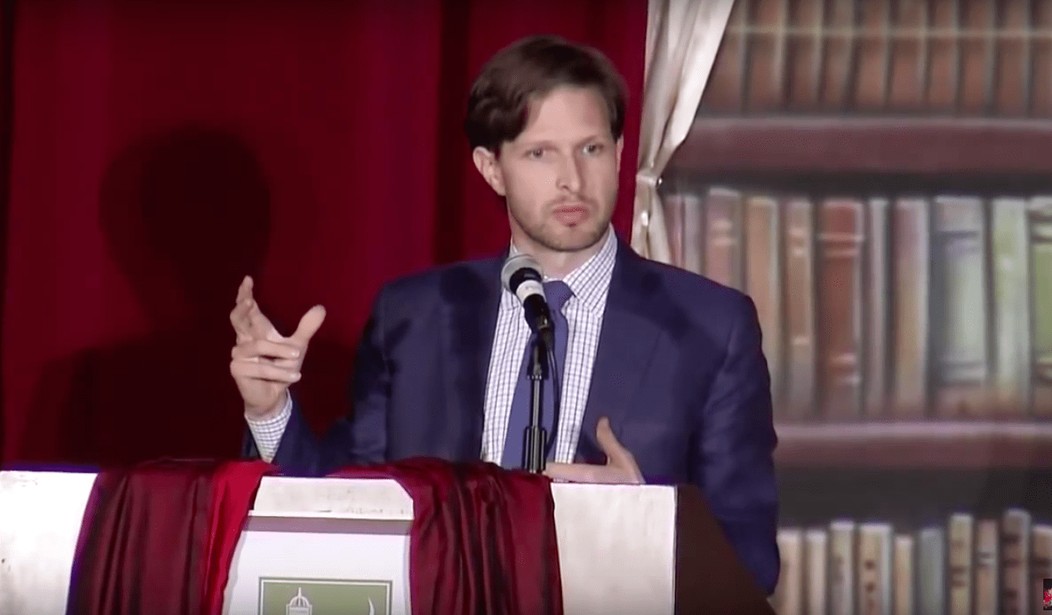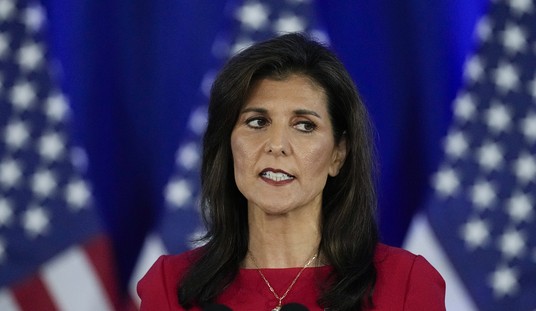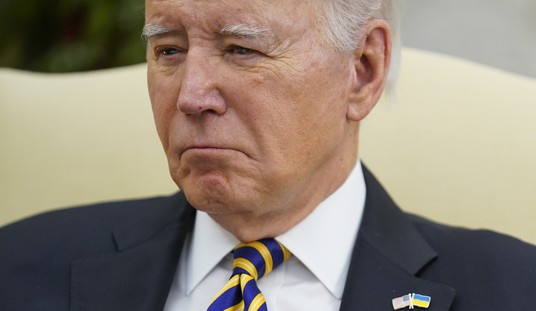An Islamic studies professor at Georgetown University discussed slavery in a historical context last week, shading the Muslim institution as morally superior to other forms in England, the United States, and China. While the professor asked deep questions about the meaning of slavery across different social and historical contexts, his discussion proved painfully one-sided, ignoring the evils of Islamic civilization (and the continuing slavery in the Muslim world) while berating others.
“I don’t think it’s morally evil to own somebody,” declared Jonathan A. Brown, the Alwaleed bin Talal Chair of Islamic Civilization at Georgetown University. Brown argued that the modern Western notion of “autonomy” is overemphasized, and that in reality “we own lots of people all around us and we’re owned by people.” Due to the complexity of human interdependence and social interaction, “the term doesn’t mean anything,” and neither does the term “slavery.”
“As we have seen, ownership, freedom, and exploitation come in shades of gray,” the Islamic studies professor said. He argued that “what we think we mean by slavery means little outside our American experience,” and he suggested that modern Americans would be unable to identify slavery in other historical contexts.
Brown does have a point. He presented a few scenarios: the work of a prison chain gang, a young man being beaten for refusing to take orders, and a posh ruler in the Ottoman Empire. The chain gang is technically not slavery, but Americans would be more likely to identify the prisoners as slaves. The young man being beaten is the master’s son, not his slave, and the posh ruler — a grand vizier — is technically a slave.
“We associate slavery with physical degradation, harsh labor, and violence … [and] with a total loss of agency,” Brown explained. Historically, slavery has not always included these things.
The difficulty with Brown’s presentation is not the deep probing questions on what constitutes slavery and freedom — those are legitimate academic pursuits. The difficulty comes with Brown’s examples. While the lecture was entitled “Islam and the Problem of Slavery,” the professor only presented a few examples of Islamic slavery, and they were overwhelmingly positive. American, British, and Chinese examples weren’t so lucky.
Brown said he was trying to distinguish “slavery from other forms of coerced labor,” but in doing so, he pointed out the horrid conditions of indentured servants from Britain and slavery in colonial America — contrasted with the slavery in the 1400s Ottoman Empire, when slaves were sometimes settled to work on the land and could pass down their estates to their children.
The professor’s bias also emerged in an off-hand remark about tax dodging. After noting that in 1724 the Russian czar abolished slavery because serfs were selling themselves as slaves to avoid paying taxes, he quipped that “maybe this could be an option for Republicans or something.”
Interestingly, despite the focus on nuance and historical uncertainty throughout his lecture, Brown made two sweeping statements about Islamic slavery. First, he argued that “you don’t find the brutality that you see in American slavery.” Second, he claimed that most slavery in human history is not “racialized” like American slavery was — with the implication that Islamic slavery was not based on skin color.
As for brutality, the American South did mistreat slaves horribly, but that kind of slavery ended over 150 years ago. Human trafficking, forced labor, and outright slavery exist across the Middle East, however — especially among jihadist groups like the Islamic State (ISIS), whose soldiers take women as sex slaves. Many Muslim teachers still condone such barbaric practices even today.
Furthermore, does Brown really expect his listeners to believe that all Muslim slaves were treated far better than all American slaves? Even in the American South, slavery was a diverse institution (there were even black slave-holders, for instance). Thomas Jefferson and John Adams even conducted warfare against the vassal states of the Ottoman Empire to end the Barbary slave trade, where North African pirates enslaved between 1 and 1.25 million Europeans. Were those 1 million slaves really all treated better than American slaves?
Finally, slavery was indeed racialized in Islamic societies. In 2014, a Muslim American group in Detroit adopted the rallying cry “Drop the A-Word,” in a movement to stop Arab-Americans from using the racial slur “abed” which means slave or servant, and its plural form “abeed,” when referring to black people.
Indeed, since there were restrictions on the enslavement of Muslims and “People of the Book” (Jews and Christians) in Islamic law, Muslims frequently enslaved pagans in Africa known as the Zanj, who were treated as inferior to European and Caucasian slaves. Tens of thousands of Afro Turks, descendants of these slaves, live in Turkey and have established their own organizations in that country.
These evils do not make American slavery any more defensible, but Brown’s focus on the evils of the West and the virtues of Muslim slavery is extremely dishonest.
Umar Lee, a Muslim writer who attended the lecture, responded with disgust. “I thought the Muslim community was done with this dishonest North Korean style of propaganda,” Lee declared. “Obviously not.” The writer lamented:
Absent from [Brown’s] talk (until challenged) was any recognition of the rampant abuse of workers in the [Persian] Gulf, the thousands of workers in the Gulf dying on construction sites, the South Asian child camel-jockeys imported into the United Arab Emirates to race camels under harsh conditions, or the horrific conditions of prisoners in the Muslim World (the latest news being 13,000 prisoners executed in Syria).
Lee went even further, attacking Brown for saying that “rape is normal.” The writer put words into the professor’s mouth, saying Brown argued that “consent wasn’t necessary to moral and ethical sex and that the morality of sex is dependent on the lawfulness of the sex-partner and not consent upholding the verdict that marital-rape is an invalid concept in Islam.”
This interpretation of Brown’s comments assumes too much. Brown merely argued that “for most of human history, human beings have not thought of consent as the essential feature of morally correct sexual activity.” He claimed that modern Americans “fetishize the idea of autonomy to the extent that we forget — again, who is really free?” Throughout history, women typically married whomever their parents wanted them to marry. The professor argued that there is no “big difference” between a woman captured in a raid and forced to become a sex slave and a baker’s daughter who is forced to marry another baker’s son.
“Technically speaking in Islamic law, the consent of the wife is required,” Brown added. But he wondered, “it’s always understood that you’re going to marry the person your parents want you to marry [so] what does consent mean?” This is a huge dodge, and along with his “fetishize” autonomy comments, it should make Americans cringe.
Nevertheless, it is indeed too much to say Brown was supporting rape as normal. Could his ultimate intention in creating a gray area between sex slavery and historical marriage be to blur the lines of consent and defend the view among many Muslims that marital rape is impossible? Perhaps. But there’s not enough evidence in this lecture alone to support this claim.
Nevertheless, Lee made an excellent concluding point. He recalled leaving the lecture “knowing that a Catholic Priest at Georgetown would be fired immediately if he defended the brutality of Catholic-led slavery in Latin America or defended rape. The same would be true of a rabbi at Yeshiva University. So, why as Muslims should we tolerate and invite someone like Brown to speak?”
There is an excellent question. Could there be an invidious double standard for Muslims and followers of other religions? Or are academics just more likely to ignore a blatant bias in favor of Islamic slavery?
Click “Load More” to hear the lecture.
Here’s a video of Brown talking about the Hadith.








Join the conversation as a VIP Member